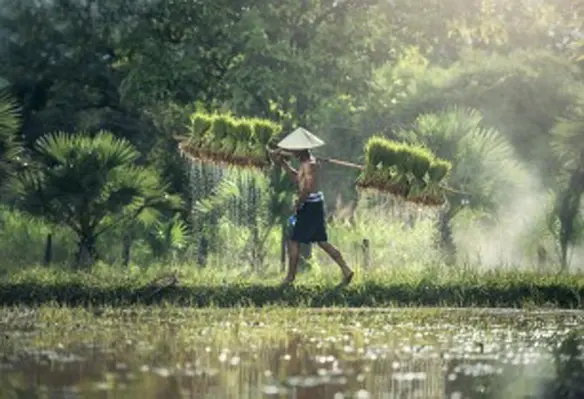Forest and Farm Producer Organisations (FFPOs) from more than 10 countries of Asia-Pacific gathered in Myanmar for the second regional conference to accelerate and scale up implementation of the SDGs in climate-resilient landscapes for the benefit of local farm and forest communities
The conference: “From users to producers: Scaling up FFPO businesses to implement the Sustainable Development Goals (SDGs) in climate-resilient landscapes” is a three-day meeting providing an opportunity for representatives of local, regional and global forest and farm-related organisations to share best practices that will help improve livelihoods through collaboration and networking.
At the core of this work are producer organisations with their strong organisational and operational structures and proven ability to offer a wide range of services to smaller producers — from management of natural resources to information, technology, business skills, market access and financing.
“Producer organisations are strategic partners for FAO in achieving its mandate and SDG targets on food security and poverty reduction,” said Xiaojie Fan, FAO representative in Myanmar. “FAO supports existing dynamics in countries, by strengthening producer organizations’ capacities at global, regional and national levels. Drawing on its global resources and expertise, and programmes such as the Forest and Farm Facility, FAO facilitates knowledge generation, organisation capacity building, legal and policy reforms, partnerships and South-South cooperation,” she added.
For more than 450 million people across Asia and the Pacific, forests are an integral part of their lives, with forest producers — through their key contributions to local economies and rural development — among the primary actors working daily towards the achievement of the SDGs. FFPOs also play an important role in increasing the resilience of the most vulnerable rural communities who are socially or economically excluded, by providing a form of social protection that allows them to overcome these harsh situations and thereby avoid extreme poverty and hunger.
Community forest and farm businesses are also critical actors in the chain of measures to build and enhance climate resilience in landscapes. Moreover, by offering landscape-dependent communities opportunities to diversify their income, FFPOs provide these communities with a means of increasing their economic resilience. The businesses also increase ecological resilience, through enriching and connecting ecosystems.
Another important expected conference outcome is a set of strategic recommendations on how to raise forest and farm businesses to a higher scale of commercialisation, providing opportunities to women and youth in particular, securing tenure, as well as incorporating measures on climate change and landscape restoration.
The conference was organised by FAO Myanmar, the Forest Farm Facility — a partnership between FAO, the international Institute for Environment and Development, the International Union for the Conservation of Nature, and AgriCord. The conference follows the first Asian FFPO Regional Conference “Promoting rights and livelihoods through forest and farm producer organizations” held in Thailand in December 2016.




